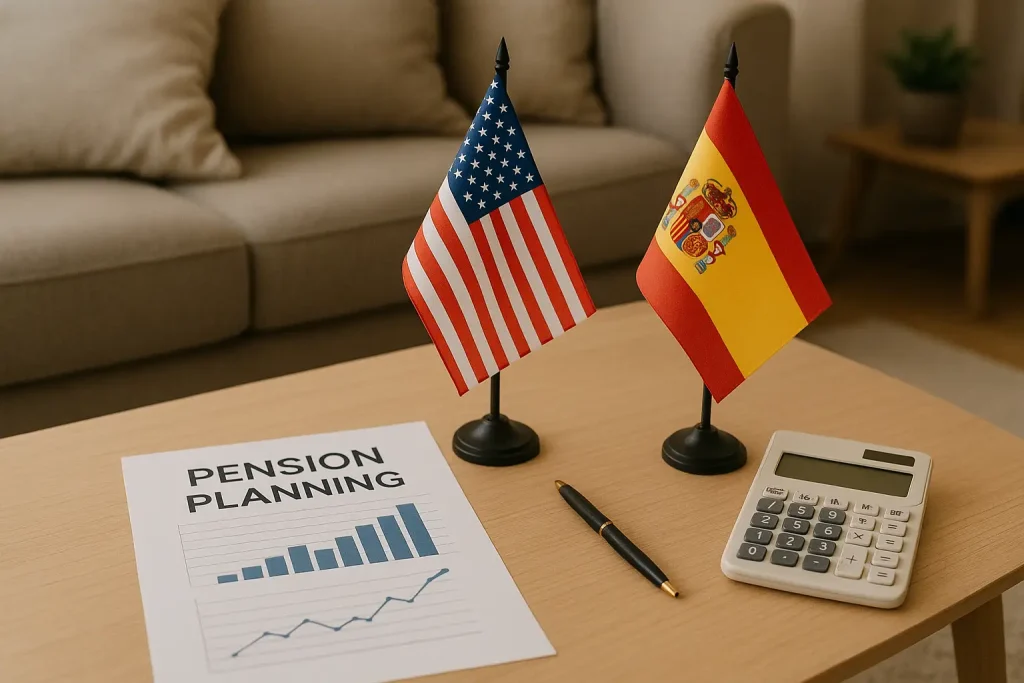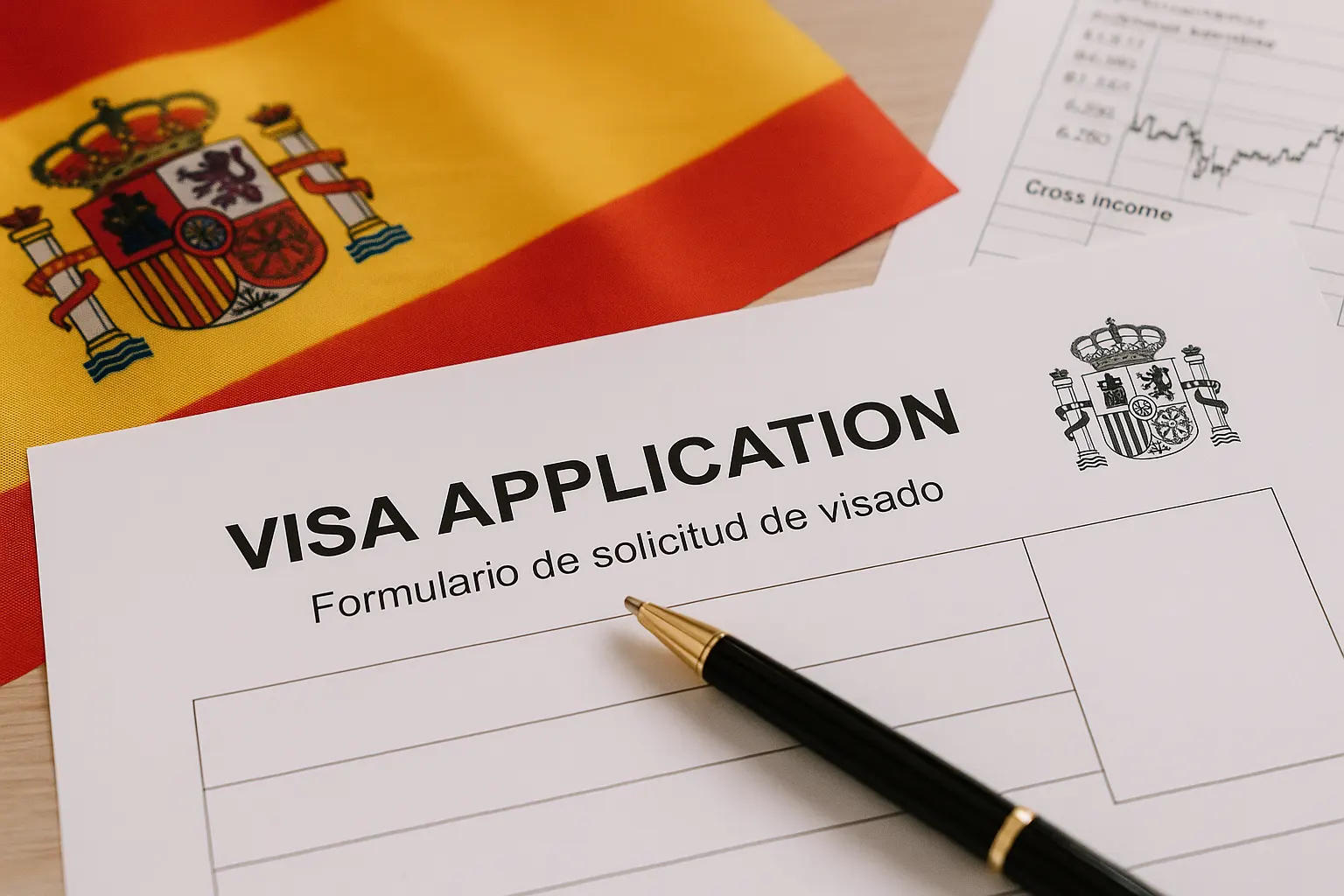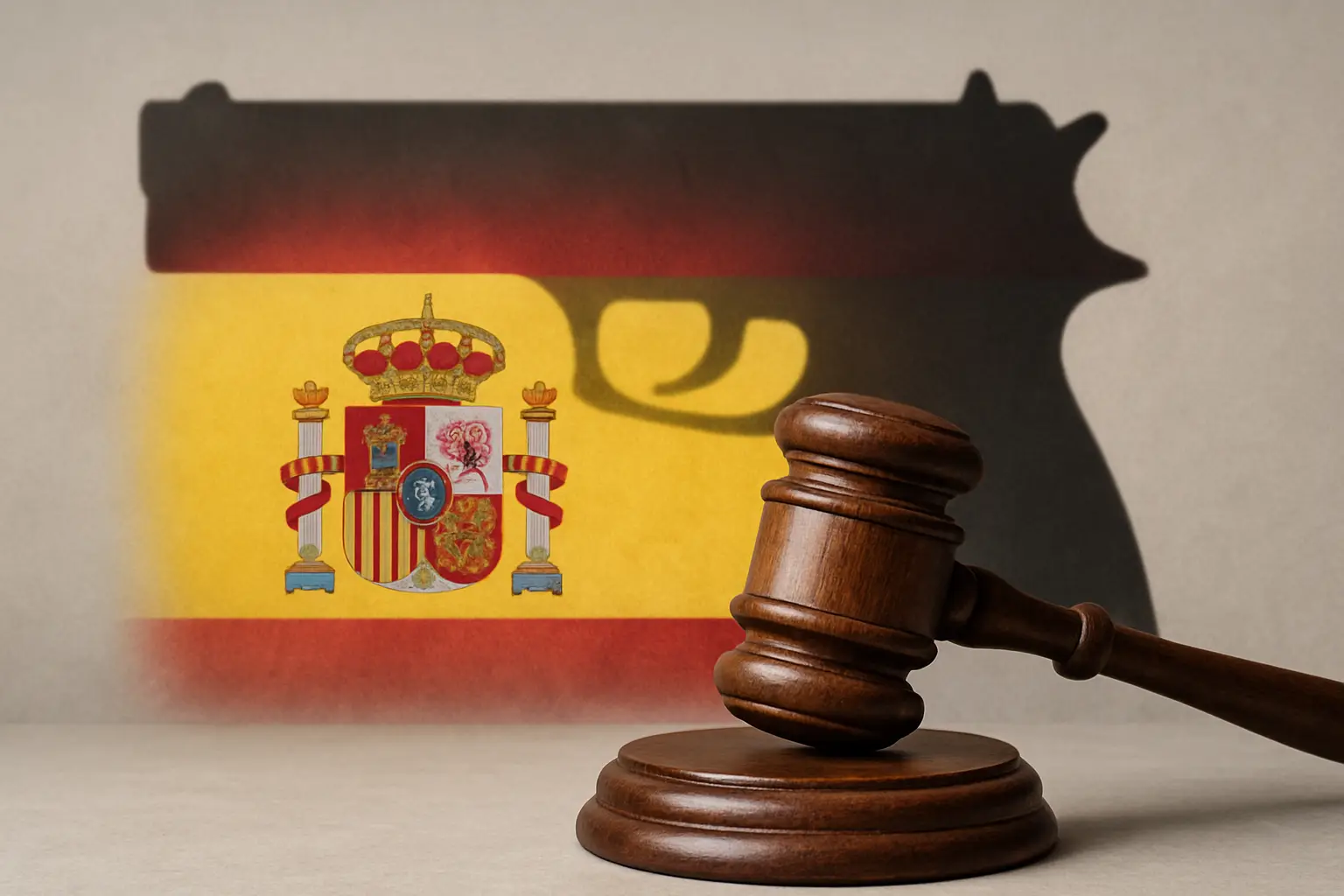If you’re an American living in Spain, it’s important to understand how your pensions are taxed. This knowledge is crucial for managing your finances and staying compliant with Spanish tax laws.
The US-Spain tax treaty also comes into play here, as it provides guidelines to prevent double taxation and ensure a fair distribution of tax obligations between both countries. By familiarizing yourself with these rules, you can effectively navigate your tax responsibilities.
In addition to understanding pension taxation, obtaining a non-lucrative visa may also be a necessary step for some expats, as it allows them to reside in Spain without engaging in any professional activities.
Understanding Taxation of US Pensions in Spain
Criteria for determining Spanish tax residency:
-
Spanish tax residency is determined by factors such as spending more than 183 days in Spain within a calendar year.
-
It can also be based on having a permanent home or center of economic interests in Spain. For retirees, obtaining a Spain Non-Lucrative Visa can be an effective pathway to achieving permanent residency.
Taxation of worldwide income for Spanish residents:
-
Spanish tax residents are subject to taxation on their worldwide income.
-
This includes income from pensions, investments, rental properties, and any other sources globally.
Progressive personal income tax rates in Spain and its implications on pension income:
-
Spain has a progressive tax system with varying tax rates based on income levels.
-
The tax rates range from 19% to 47%, with additional regional surcharges in some areas.
-
Pension income is taxed at these rates, impacting the overall tax liability for individuals receiving US pensions while residing in Spain.
Impact of US-Spain Tax Treaty on Pension Taxation
1. Explanation of the US-Spain Tax Treaty Provisions
The US-Spain tax treaty plays a crucial role in determining how pensions are taxed for individuals residing in Spain. This agreement outlines specific rules regarding the taxation of pension income to prevent double taxation and ensure a fair distribution of tax liabilities between the two countries.
2. Benefits of Foreign Tax Credits and Exclusions
Under the tax treaty, individuals can benefit from foreign tax credits and exclusions on their US tax returns for taxes paid in Spain. This allows taxpayers to reduce their overall tax burden by offsetting taxes paid in one country against those owed in the other, thereby avoiding being taxed twice on the same income.
3. Prevention of Dual Taxation on Pension Income
One of the primary objectives of the US-Spain tax treaty is to prevent dual taxation on pension income. By establishing clear guidelines for how pensions should be taxed in both countries, the treaty ensures that individuals receiving pension payments do not face excessive tax liabilities in both the US and Spain.
Additionally, retirees seeking to reside in Spain might consider applying for a Non-Lucrative Visa, which allows them to live in Spain without engaging in any work activities. This visa has specific eligibility criteria and benefits that can significantly enhance their experience while living abroad.
By understanding the provisions of the US-Spain tax treaty and leveraging foreign tax credits and exclusions, individuals can optimize their tax situation when receiving pensions in Spain. This comprehensive framework helps expats navigate complex cross-border taxation issues and ensures compliance with relevant regulations.
Taxation of Specific Types of Pensions in Spain
When it comes to the taxation of specific types of pensions in Spain, there are distinct considerations for different categories:
Treatment of US Government Pensions:
Under Spanish taxation rules, US government pensions are generally taxed in Spain. They are considered taxable income and subject to progressive personal income tax rates.
Exemption Possibilities for Social Security Income:
Social Security income may be exempt from taxation in Spain based on the provisions outlined in the US-Spain tax treaty. This exemption aims to prevent double taxation on this type of pension income.
Taxation Status of Private Pensions for US Expats:
Private pensions received by US expats residing in Spain are typically subject to Spanish taxation. These pensions are also considered as part of the individual’s worldwide income and taxed accordingly.
Navigating the taxation landscape for different types of pensions requires a thorough understanding of both US and Spanish tax laws to ensure compliance and optimize tax liabilities.
Filing Requirements and Deadlines for US Expats with Pension Income in Spain
Obligations for Filing a Spanish Personal Income Tax Return as a Resident with Pension Income
US expats in Spain who receive pension income are required to file a Spanish personal income tax return if they meet the residency criteria. Being a tax resident in Spain means declaring worldwide income, including pensions, to the Spanish tax authorities.
For those considering a long-term stay in Spain, obtaining a Spain Non-Lucrative Visa might be an option. This visa allows individuals to reside in Spain without engaging in any lucrative activities.
Overview of the Declaración de la Renta Process and Requirements
The Declaración de la Renta is the annual tax return in Spain where residents report their income and pay any taxes due. For US expats with pension income, it is crucial to accurately report all sources of income, including pensions from the US. Understanding the process and requirements of this declaration is essential to comply with Spanish tax laws.
In addition to filing taxes, it’s important for expats to understand the income requirements associated with their visa status. This includes demonstrating sufficient financial means to support themselves during their stay in Spain.
Deadline for Submitting Tax Returns in Spain
The deadline for submitting the Declaración de la Renta in Spain is typically June 30th of each year. It is important for US expats with pension income to adhere to this deadline to avoid any penalties or fines. Seeking assistance from a tax professional familiar with both US and Spanish tax laws can help ensure timely and accurate filing.
Strategies to Optimize Tax Liabilities for US Expats Receiving Pensions in Spain
Consulting a tax professional who understands both US and Spanish tax laws is essential for US expats seeking to navigate complex pension taxation. Such expertise clarifies questions like does spain tax us social security benefits or does Spain tax US government pensions for retirees, enabling informed decisions.
Key strategies include:
-
Utilizing the US-Spain tax treaty to claim foreign tax credits and avoid double taxation on retirement income.
-
Structuring pension withdrawals to optimize income brackets under Spain’s progressive personal income tax rates.
-
Exploring exemptions or reductions applicable to certain types of pensions, such as military or government pensions.
-
Considering residency status carefully, as it directly influences worldwide income taxation, including pension income. For instance, understanding the tax obligations for holders of Spain’s non-lucrative visa can be particularly beneficial for retirees, especially when considering if is spain a good place to retire.
Legal methods to minimize tax burdens involve precise record-keeping, timely filing, and leveraging all available deductions. Understanding what countries do not tax US pensions also informs future relocation or investment strategies.
Expert guidance reduces risks of errors and penalties while maximizing net pension income during retirement in Spain.
Conclusion
When dealing with the complexities of US pensions being taxed in Spain, it’s crucial to seek expert advice. Understanding the nuances of taxes in Spain for US retirees is paramount for financial planning.
For personalized guidance on optimizing tax liabilities and ensuring compliance with both US and Spanish regulations, consider booking a consultation with NIM Immigration Lawyers.














